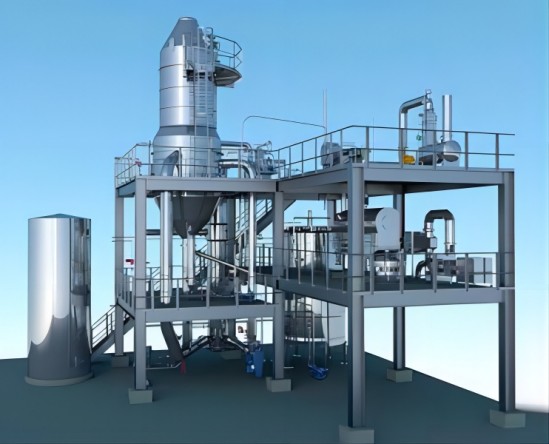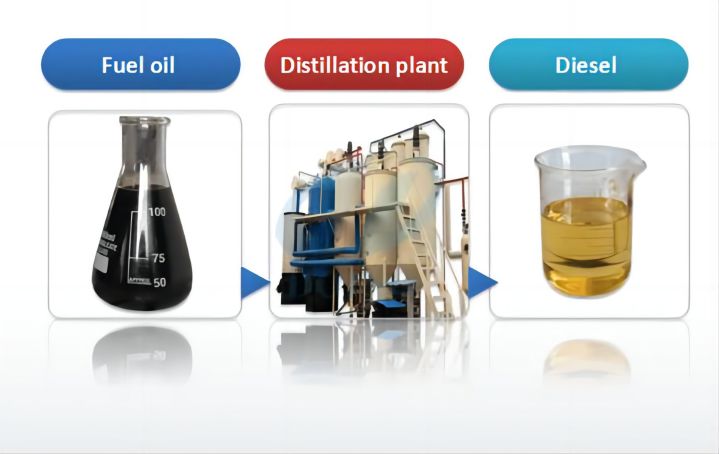Refining Process of Used Engine Oil to Diesel: A Pathway to Cleaner Diesel Fuel
In today’s world, where environmental consciousness is paramount, the disposal and utilization of waste materials have become critical concerns. Used engine oil, a byproduct of modern transportation, poses a significant environmental threat if not handled responsibly. However, recent advancements in technology have opened up avenues for converting this waste into a valuable fuel source – diesel. This transformation, known as the refining of used engine oil, offers a promising solution to both environmental protection and energy conservation.

Delving into the Distinction Between Used Engine Oil and Diesel
Before delving into the refining process, it is essential to establish a clear understanding of the fundamental differences between used engine oil and diesel fuel. Used engine oil, as the name suggests, is the lubricant that has been drained from internal combustion engines after its serviceable life. Over time, this oil accumulates contaminants, including combustion byproducts, wear metals, and additives, rendering it unsuitable for continued use in engines.
In contrast, diesel fuel is a refined petroleum product specifically designed for compression-ignition engines. It is composed of a range of hydrocarbon molecules, possessing distinct physical and chemical properties. Diesel fuel boasts a lower viscosity than used engine oil, enabling it to flow more readily under various conditions. Additionally, it has a higher flash point, indicating the temperature at which it ignites, making it a safer fuel option.
The Refining Process: Transforming Waste into a Valuable Resource
The refining of used engine oil entails a series of intricate steps aimed at removing contaminants and converting the used engine oil into diesel fuel, typically biodiesel. This process commences with physical separation, where dirt, water, and metal particles are meticulously removed. Following this, chemical treatment neutralizes acids, eliminates additives, and breaks down complex molecules into simpler ones. The final stage involves filtration, where any remaining impurities are meticulously removed, resulting in a clean and refined product.
Overcoming the Challenges of Refining Used Engine Oil
Despite the potential benefits of refining used engine oil, several challenges hinder the widespread adoption of this technology. One primary concern lies in the variations in used engine oil composition. The type of engine, its operating conditions, and the additives used can significantly impact the oil’s characteristics, making it difficult to establish a standardized refining process. Additionally, the removal of persistent contaminants, such as heavy metals, poses a technological hurdle.
Moreover, ensuring the quality and compatibility of the refined product is crucial. The refined oil must meet specific standards to ensure compatibility with diesel engines and minimize environmental impact. This necessitates rigorous testing and quality control measures throughout the refining process.

Harnessing the Environmental Benefits of Refining Used Engine Oil
Despite the challenges, refining used engine oil offers a multitude of environmental benefits. By converting waste oil into a usable fuel source, we can effectively reduce the environmental impact of its disposal. Traditionally, used engine oil was often incinerated or dumped into landfills, releasing harmful pollutants into the environment. Refining, on the other hand, diverts this waste from landfills and reduces the need for crude oil extraction, thereby conserving fossil fuels and minimizing environmental degradation.
Furthermore, refined fuel, typically biodiesel, produces cleaner emissions when compared to traditional diesel fuel. This is attributed to its lower sulfur content and reduced aromatic hydrocarbons, contributing to improved air quality and mitigating the harmful effects of air pollution on human health.
Conclusion: Embracing a Sustainable Approach to Waste Management and Energy Production
The refining of used engine oil presents a compelling solution to waste management and energy conservation challenges. By transforming waste into a valuable fuel source, we can minimize environmental damage, conserve fossil fuels, and contribute to a more sustainable future. As technology advances and the refining process becomes more efficient and cost-effective, the widespread adoption of this practice can revolutionize the way we manage waste and produce energy.







